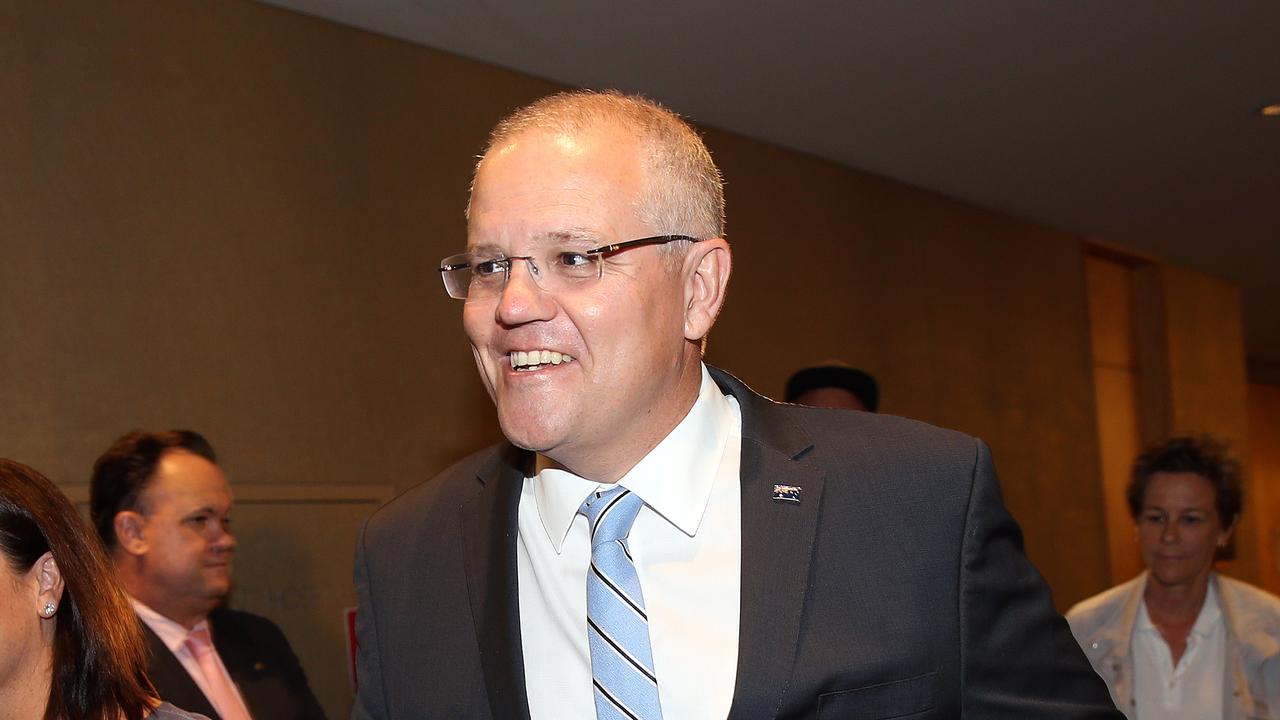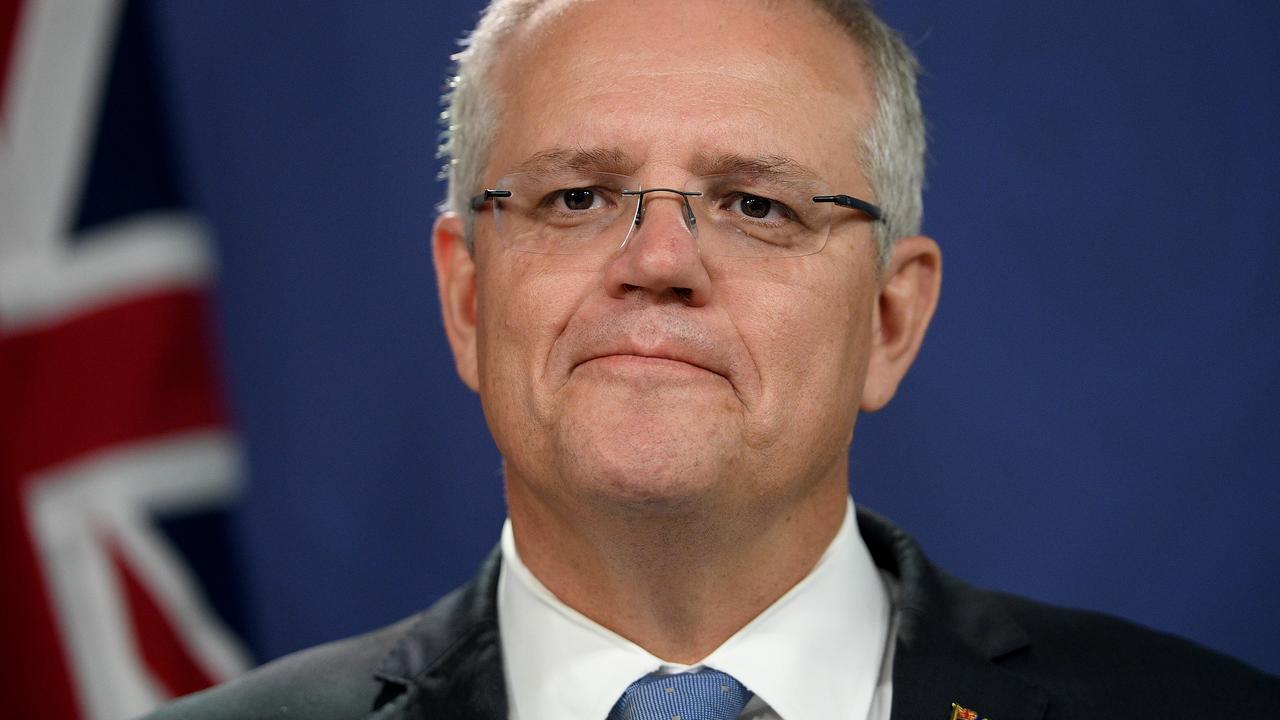
On Wednesday, Malcolm Turnbull responded to a question in parliament from Clive Palmer about housing affordability and potential changes to the capital gains tax treatment of the family home. It embodied every aspect of the politics of the so-called tax reform debate.
In welcoming the question, the Prime Minister demonstrated the government’s tax dilemma and Labor’s lack of any real response.
By refusing to “rule in or rule out” anything and having everything on tax reform “on the table”, including raising the GST to 15 per cent, the Coalition has no choice but to consider any idea from anyone, including the member for Fairfax, no matter how unlikely.
As this process of “not ruling out” continues, the Coalition moves deeper into defending the idea of tax reform, which seems inevitably to include unpopular changes to the GST and superannuation to fund changes to personal income tax and compensation for low-income earners.
The political risk is made only greater by the lack of parameters or definitions, enabling every fear and scare to take hold in the public mind — from GST on fresh fruit, education, medicine, unquantified super slugs, changes to negative gearing for middle-income investors and CGT on the family home to hits on welfare recipients.
The natural political progression of this means that, as time goes on and the election nears, the government will have to adopt raising the GST and-or super taxes, or run the equal risk of being accused of having a secret plan to do so, despite ruling it out. This is worrying many Coalition MPs.
But, while it seems Bill Shorten has been given an easy way to bring Turnbull back to earth, the response to Palmer’s question contained an avenue for the Coalition to respond to the scare campaign before any firm decisions are made.
As part of his charm offensive towards the crossbenchers, and a continuing relationship with his dinner companion at Canberra’s Wild Duck restaurant, Turnbull praised Palmer for “eloquently” raising an idea even as Coalition MPs heckled the independent for not coming to parliament.
“What the honourable member is canvassing, as I understand it, is this proposition: at the moment, as we know, home interest payments on your own home are not tax-deductible but the profit on the sale of a home is free of capital gains tax,” he said.
“What the honourable member is suggesting is that there should be an alternative whereby interest payments were tax-deductible but the sale on the house would be assessable to CGT in the normal way as though it were any other asset.”
Turnbull, in full new politics mode where nothing is ruled out, went on: “This is actually a suggestion. I am not in a position to say that the government would accept it or favours it, but it is an idea.”
It was possible to detect some Liberal MPs shifting uncomfortably in the green leather seats as the idea of applying CGT to the family home danced liked a fantastic crocodile fairy before them, threatening to gobble up narrow electoral margins.
Yet this is where Turnbull and Scott Morrison are trying to turn Labor’s GST scare campaign into a political weapon on economic management.
The Prime Minister, praising the suggestion, said it “stands in stark contrast to anything that has come from the Labor Party”.
“It is something that should be considered, and so there you have a party with only one representative in the House of Representatives actually making suggestions about tax reform and tax change, and whole ranks of the Labor Party are unable to do anything,” he said.
Here is the nub of Turnbull’s new politics approach: Labor is not “constructive”, it doesn’t have any ideas and won’t enter the debate while the Coalition and even Palmer are prepared to debate, discuss, consult and pursue all those other inclusive buzz words in relation to addressing necessary tax reform aimed at bettering the economy and lowering the personal income tax burden.
Clearly adopting the John Howard approach to tax reform, Turnbull is embracing the challenge, daring to be different, risking real loss but also shifting the debate on to economic management even while the arguments on tax are undefined and dangerous.
On the 40th anniversary of the sacking of Gough Whitlam, with whom Turnbull expressed sympathy on constitutional issues, the Prime Minister pressed home the basic argument against Labor about economic management. Whitlam was not turfed out by the electorate because of the dismissal, he said, but was dumped because of its appalling economic management.
Harking to Tony Abbott’s preferred mantra of “jobs and growth”, Turnbull pointed to growing investment and business optimism in a week when the unemployment figures unexpectedly dropped below 6 per cent and predicted the next election would be about the economy.
Here Turnbull and his Treasurer are prepared to try to resist Labor’s attrition on the GST while accusing it of having no ideas, no alternative economic plans and relying only on negative scare campaigns.
As one who was a master at conducting a negative scare campaign and, incidentally, being a victim of one, Abbott recognised that as a reformer Turnbull was not bound by his commitments but “still faces the problem of how to deal with the ‘no one can be worse off’ mindset that makes serious reform so hard”.
Writing in The Spectator of the British experience, Abbott said: “Changing the tax burden from income to spending makes sense but only if overall taxes become lower, simpler and fairer. The real challenge, in Australia as in Britain, is how responsibly to spend less on short-term consumption and more on long-term investment in infrastructure and national security.”
Turnbull’s response is to take the risk of the GST campaign balanced against Labor’s economic credibility and once again highlight that Labor is avoiding the dogged work and instead attempts to leapfrog back into contention by using scare campaigns based on Abbott’s unpopularity or a reheated GST.
This is not an easy political strategy to pursue for Turnbull, and overconfidence and a lack of definition could bring the whole thing crashing down.
This is particularly the case when there are those on the Labor side who can see the deeper game and offer a broader vision.
New opposition productivity spokesman Jim Chalmers, who has been singled out by Turnbull in parliament, said in delivering his first speech this week: “We are at a defining moment in our national economic trajectory. We need to work out how to make this extraordinary change work for us and not against us. It is always the right time to be thinking about and talking about productivity, but acting as well.”
Chalmers warned: “We cannot count on our history. We cannot count on that quarter-century of growth to deliver another quarter-century of growth from here. If we do not become more productive, we will go backwards; we will not grow in a sustainable way.”
Continuing the GST debate carries great risk for Turnbull but is no simple single answer for Labor in a complex web of economic credibility and alternatives that Turnbull is prepared to take to an election, perhaps as early as the 20th anniversary in March of the election of the Howard government, which later fought two successful GST elections.




To join the conversation, please log in. Don't have an account? Register
Join the conversation, you are commenting as Logout